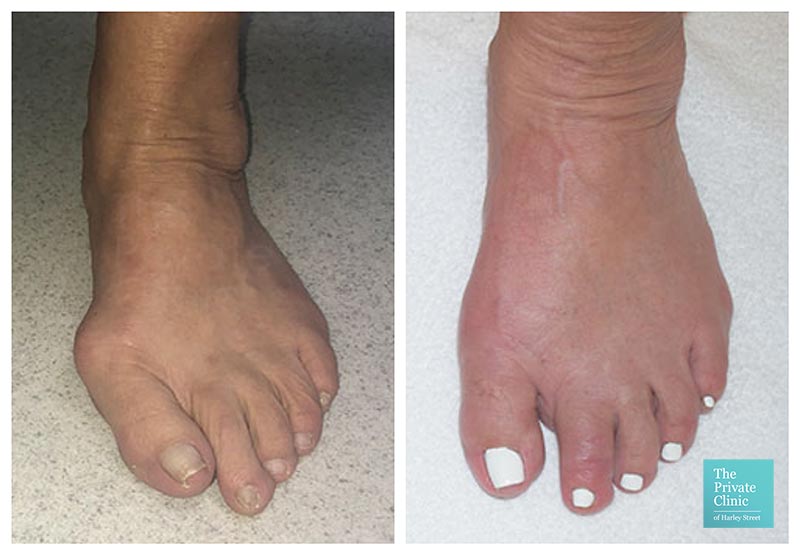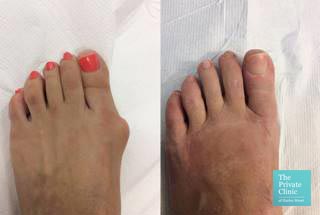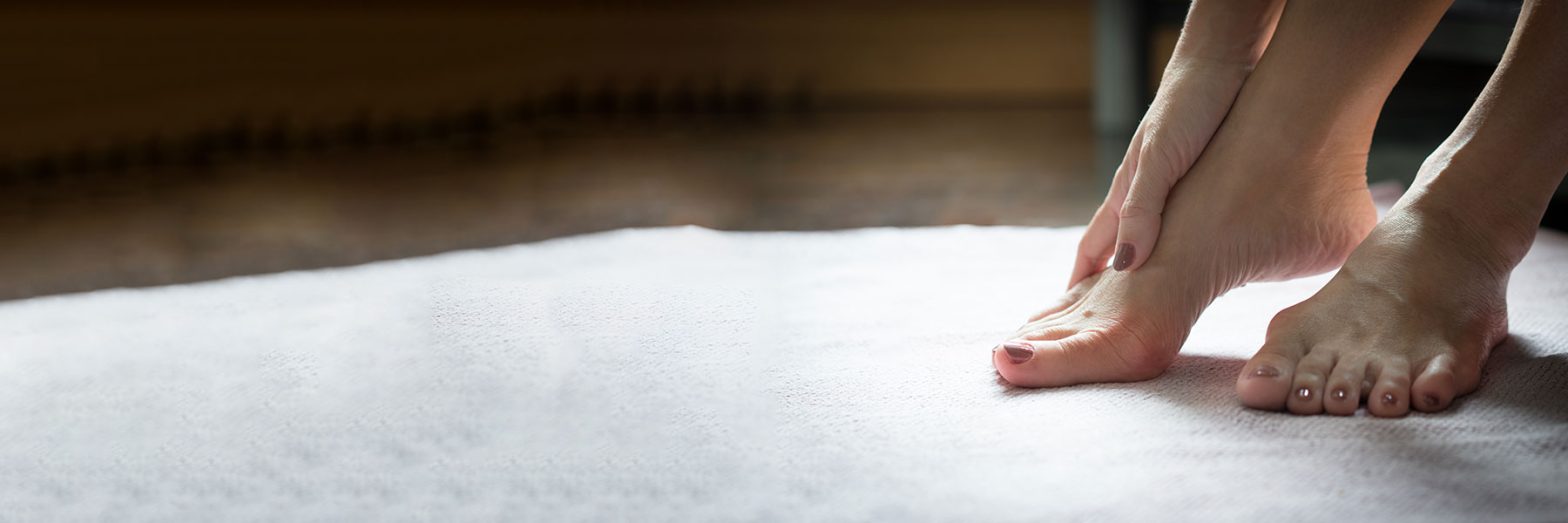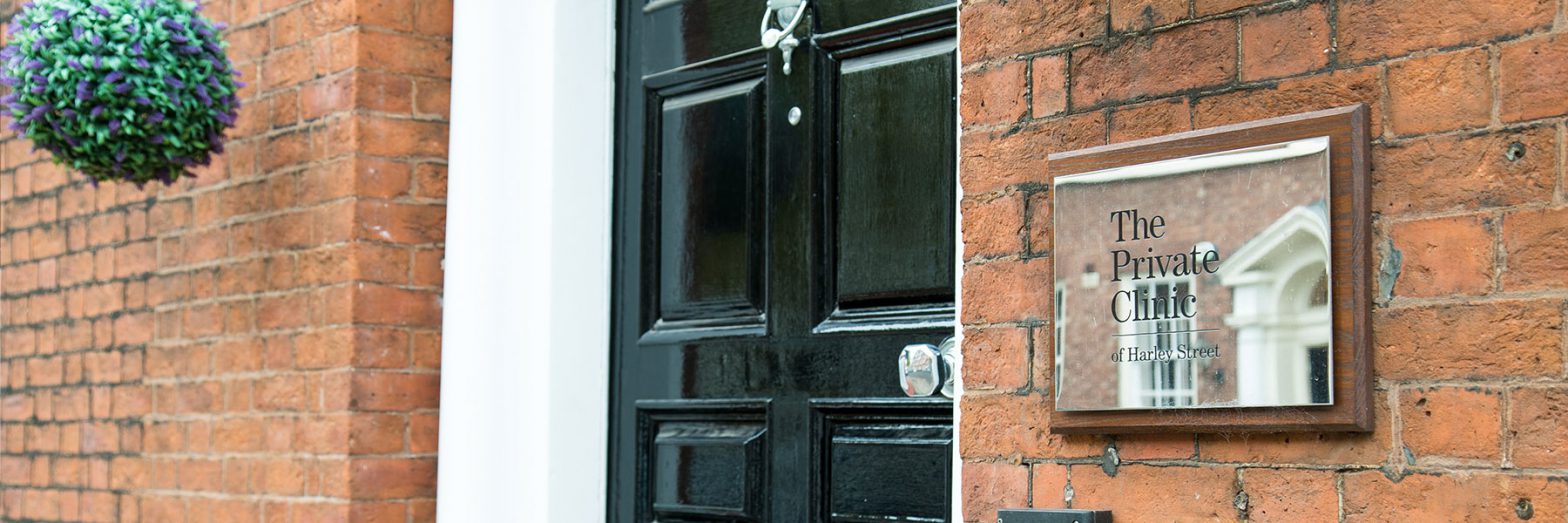How to treat bunion pain?
BUNION SURGERY
Bunions or Hallux Valgus as they are medically known are bony bumps on the inside of the foot around the big toe. It is actually a deformity of the foot which forms over time when your big toe pushes against your next toe, forcing the joint of your big toe to grow and stick out the side of your foot.
In most cases, bunions are an aesthetic concern but for some, bunions can be painful and cause everyday discomfort especially when it comes to wearing certain shoes and exercising.
Physical symptoms of bunions include:
- Swelling of the foot
- Restricted movement of the big toe
- Formation of calluses
- Compromised balance
- Not being able to walk normally
There are lots of options out there to help people relieve the pain of their bunions such as:
Medication for Bunions
Pain medication is an obvious choice for bunion pain. Medications such as ibuprofen can help to reduce pain and swelling but are not something that we advise taking on a regular basis. Your GP may also be able to offer you corticosteroid injections which can be effective for a couple of weeks but this again, is not a long-term treatment solution.
Foot Exercises for Bunions
Foot and, or ankle exercises can help to relieve some of the physical symptoms of bunions by correcting muscle imbalance around the joint. Exercises include muscle-strengthening movements which will help with joint alignment and motion exercises to keep the joint mobile. Example exercises include heel raises, curling the toes and spreading the toes.
Related: Foot Exercises for Bunions
Pads and Splints for Bunions
Bunion pads and splints are one of the most common bunion treatment methods available which can be sourced from most health stores, pharmacies and even supermarkets.
Bunion pads are soft pads that you can put into shoes to stop them rubbing against the bunion which can be effective at reducing any pain or irritation.
Bunion splints often come in the form of toe spacers or toe supports and are designed to push the big toe into better alignment. In most cases, these splints can only be worn whilst at home as they can be quite bulky which makes wearing shoes difficult.
The results from bunion pads and splints are also very mixed. Overall, they help to reduce some of the pain and swelling but they will in most cases, not be able to actively treat or reduce the size of the bunion.
Orthotics for Bunions
Orthotics are specialised shoe or heel inserts and are often prescribed or recommended by doctors or podiatrists. In most cases, orthotics are custom-made, and you may have difficulty finding bunion-specific orthotics that are not prescribed. Orthotics may help to relieve discomfort and pain whilst wearing shoes by providing support for the foot or heel, but they will not actively help to treat the bunion.
Surgery for Bunions
Bunion surgery, medically known as a bunionectomy or an osteotomy is the only method available that will treat a bunion and the pain associated with it with long-lasting results.
Bunion surgery is often a last resort for many people as it traditionally has required long recovery times and a painful recovery.
Where can I have Bunion Surgery?
We are pleased to be able to offer Minimally Invasive Bunion Surgery consultations at our London Harley Street, Manchester and Bournemouth clinics that use keyhole surgery techniques.
It is a quick surgical procedure performed under local anaesthetic that doesn’t involve any fixative devices such as screws, plates or wires. Shortly after the treatment has taken place, patients are able to and are encouraged to walk before leaving the hospital and can leave with no need for crutches.
Patients can return to their everyday activities a lot quicker than traditional bunion removal surgery with no extensive downtime.
The scaring post-procedure is also minimal as no z-shaped cut is used.
Minimally invasive bunion surgery is exclusively available at The Private Clinic of Harley Street under the strict supervision of Orthopaedic Consultant Surgeon MD, Mr Andrea Bianchi founder of PBS, the team who developed the percutaneous bunion surgery in 1996 and has supervised over 50,000 surgeries since.


Why Choose Minimally Invasive Bunion Surgery at The Private Clinic?
- Exclusive to The Private Clinic in the UK, there is no other operation like this one.
- Bunion Removal Surgery is performed under local anaesthesia using keyhole techniques.
- This is the only natural operation with no metal fixtures such as wires or screws being used.
- There is a 98% success rate following the bunion operation
- Orthopaedic Consultant Surgeon, Mr Bianchi is an expert in his field and has been carrying out bunion operations for 15 years
- Dr Bianchi carries out on average 1,200 bunion operations a year
- Walk immediately after surgery
- No need for an overnight stay
- Minimal post-operative pain and aftercare required.
- No scar
- Treatment is carried out in our state-of-the-art London Fitzroy hospital
- 24-hour patient helpline direct to your nursing team and surgeon, which means should you have any concerns we are here to help.
- Dedicated post-operative care and appointments with your surgeon and nursing team. We are here to give you the best experience.
- Our excellent reputation for patient safety and satisfaction, honest advice and outstanding care means your journey with The Private Clinic will be an exciting experience to newfound confidence.
Helpful Links
- Read Karen and Michelle’s patient stories.
- View minimally invasive bunion surgery before and after photos
- Read our extensive bunion surgery FAQs
- Take a look at our bunion blogs for further information
Get in touch
To find out more about bunion surgery or to book a consultation, please call 0333 920 2471 or you can also use our online contact form for bunion surgery.







